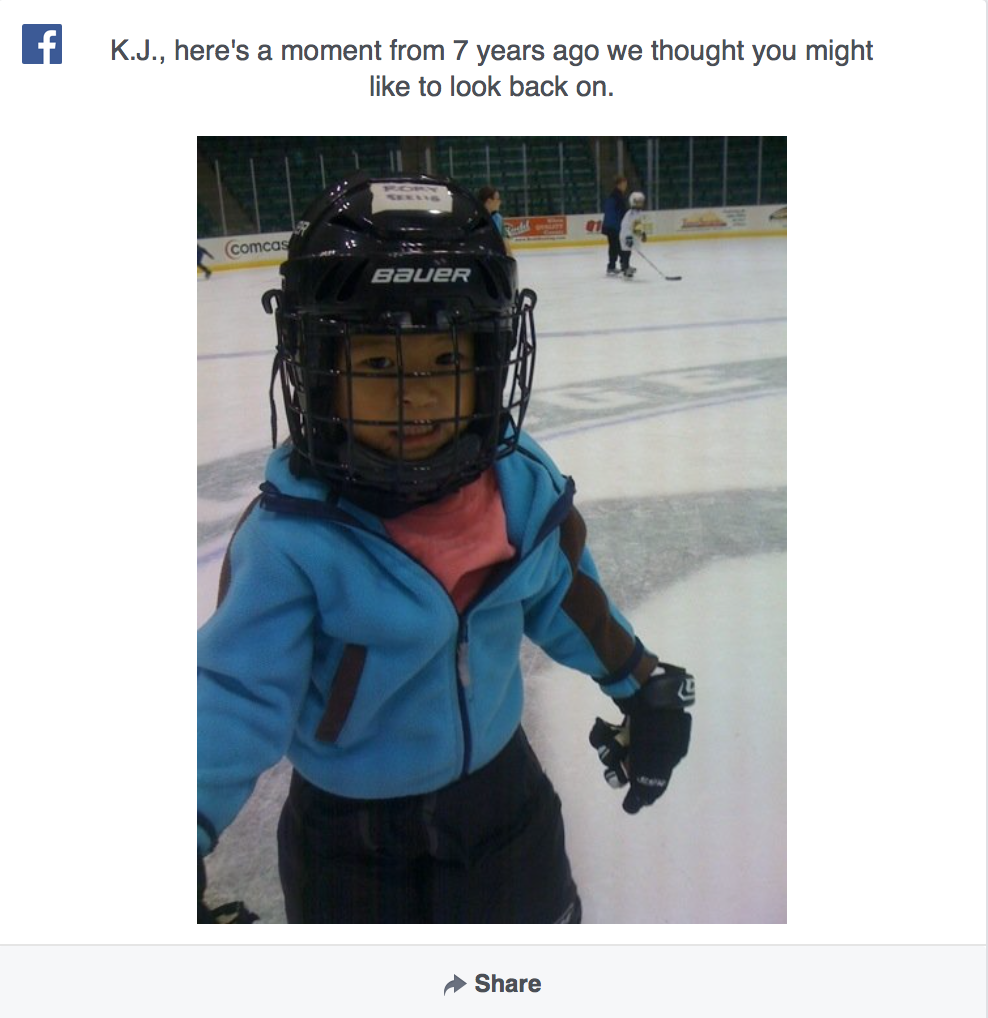 Facebook’s “Memories” are making my life look awfully good.
Facebook’s “Memories” are making my life look awfully good.
Of course, my life is awfully good, what with the whole more than enough to eat, full wardrobe of my favorite jeans and sweatshirts and more books than I have time to read thing. I mean, one of our garage door openers is broken, but when that’s your biggest complaint, you know things are smooth.
But smooth as things may be now, the years since I joined Facebook have not really been all glowing, hazy pictures of younger children in Halloween costumes, announcements of professional progress, or selfies of me in various places with a coffee. There have been shrieks of child tantrum and homework-induced despair, setbacks, bleak moments, dilemmas, losses, and I have shared those, I know I have, and not in some carefully curated oh-look-at-the-pretty-balloon-floating-away-in-the-sky way. There have been Facebook posts in which things sucked big time, and i was hoping for advice or affection or possibly panda videos to help see me through.
Somehow, though, those aren’t the moments that are popping up in my memories feed. No, my sense is that I’m seeing just the good stuff—and according to this post from Business Insider, I’m probably right. Unless you opt in to see, essentially, all your memories in your feed (via your On This Day page), Facebook very carefully curates what you’re seeing:
First, the company surveyed thousands of Facebook users about what they thought Facebook’s role should be in mediating their memories. Their consensus: “Facebook should provide occasional reminders of fun, interesting, and important life moments that one might not take the time to revisit.”
To help figure out how to do that best, Facebook then brought nearly 100 people from all different backgrounds into its research lab and asked them to classify memories Facebook showed them into different themes like “vacation” or “achievements,” and then rank those themes based on how much they enjoyed seeing them.
We don’t like food pictures for this purpose, it seems, or posts with sex terms or offensive language. We do like the word “miss,” suggesting that “miss you” posts are likely to reappear. And the more we share the memories Facebook offers, the more it will serve them up. Dismiss them all, and they’ll gradually disappear from your feed (although you can’t opt out completely). (Note–that Business Insider piece has some great, step by step advice on customizing these alerts or hacking them almost entirely away if you’re interested).
So while my bleakest “somebody send encouragement, stat” or “oh, man, what am I going to do about this mess” posts might have led to loads of comments and likes (and there is research showing that negative Facebook updates get more of both than the cheery ones), they won’t pop up in my Memories if Facebook can get enough clues out of their language to whitewash them away.
The result, for me, is that my own past sometimes looks like the enviable, only-the-happiest-stuff curated identity that we often object to on social media. I like the memories, for the most part, but I’d actually appreciate a reminder of my own history of frustration and disappointment once in a while.